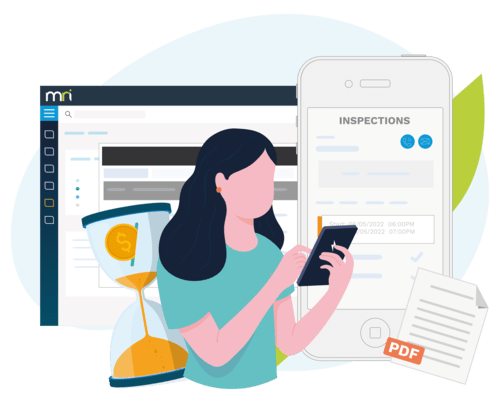Future-proofing your business: The power of cloud-based business continuity plans
Unexpected disruptions can strike at any time, bringing operations to a halt and causing serious losses. But what if your business could stay up and running no matter what? Business continuity cloud plans make that possible, offering secure, scalable, and cost-effective solutions that ensure you’re prepared for anything.
By leveraging cloud technology, businesses can access advanced tools to safeguard data, recover quickly, and maintain seamless operations. For property managers and landlords, this means fewer interruptions to tenant services, even during emergencies. Let’s dive into how cloud solutions can help future-proof your business.
The importance of business continuity in modern organisations
Emergencies don’t just cause downtime—they can put companies out of business entirely. From cyberattacks to power outages, disruptions are more common than ever and affect businesses of all sizes. A strong business continuity cloud plan is your safeguard against these challenges, ensuring critical functions stay operational.
Common disruptions that threaten business continuity include:
- Cyberattacks: Can compromise sensitive tenant and business data.
- Natural disasters: Floods, fires, or storms that damage physical infrastructure.
- Power outages: Interrupt critical systems like rent payment platforms.
- Human error: Mistakes that may cause system downtime or data loss.
The role of cloud computing and business continuity
Cloud computing isn’t just a tech trend; it’s a cornerstone of modern business continuity. The integration of business continuity cloud computing ensures that businesses are prepared for unexpected challenges. It enables businesses to store, manage, and recover data remotely, reducing reliance on vulnerable on-premises systems. With cloud computing and business continuity working hand-in-hand, recovery is faster, smoother, and less costly.
Why cloud computing outperforms traditional systems for business continuity:
- Remote management: Access critical data from anywhere with internet access.
- Real-time backups: Continuously replicate your data to avoid major losses.
- Lower costs: Reduce expenses tied to hardware maintenance and upgrades.
- Faster recovery times: Restore operations quickly with automated disaster recovery.
Take property managers, for example. Imagine a flood damages office servers—traditional recovery methods might take weeks. With the cloud, data is safe, backed up, and accessible instantly from another location, ensuring your tenants never notice a hiccup. You should also familiarise yourself with a business continuity and disaster recovery guide to ensure you’re prepared for anything.
How cloud-based systems support business continuity
Cloud-based systems offer a range of features that help businesses adapt and thrive during disruptions. Their reliability and flexibility make them an essential part of any business continuity plan. These features demonstrate how cloud-based systems support business continuity, making them a must-have for modern organisations.
Remote accessibility
With cloud computing, your team can work from anywhere with an internet connection. Whether it’s a snowstorm keeping employees home or a natural disaster affecting your office, you’ll have access to critical data and systems. For landlords, this means you can approve tenant applications or process rent payments even while working remotely.
What business continuity cloud plans look like in action:
- A property manager accessing tenant records during a snowstorm from home.
- A landlord approving rental applications while traveling.
- Staff coordinating emergency repairs using a cloud-based task management app.
Scalability
One major perk of cloud systems is their ability to scale. For example, during peak rental season, property managers may need more resources to process tenant applications and payments. With the business continuity cloud plan, scaling up—or down—happens instantly, ensuring your operations remain efficient and uninterrupted.
Security
Cloud platforms take security seriously, using encryption, multi-factor authentication, and constant monitoring to protect your data. For instance, if someone attempts unauthorised access to tenant payment information, the system can detect and block it in real-time. That kind of protection builds trust with tenants and reduces liability.
Developing a cloud business continuity plan
A robust cloud business continuity plan is your blueprint for navigating disruptions. It ensures your business can adapt and recover quickly, keeping you ahead of the curve. Here are some of the key steps you can take.
Data backup
Backing up data is a non-negotiable step in any continuity plan. Cloud systems automate backups, storing copies across multiple data centers. For example, if a server crashes, your tenant and payment records are still accessible, allowing you to resume operations without delays.
Disaster recovery
Disaster recovery is a critical part of any business continuity plan cloud strategy. Disaster recovery plans detail how to restore IT systems and data after an emergency. Cloud services for business continuity and disaster recovery make this seamless. With features like real-time data replication, you can minimise downtime and keep tenants happy.
Communication protocols
Clear communication during crises is critical. Your plan should outline how to notify employees, tenants, and stakeholders. These protocols reduce confusion and ensure everyone knows how to respond.
Checklist for effective communication protocols:
- Emergency contact list: Key personnel, vendors, and stakeholders.
- Pre-written templates: Emails, texts, or announcements for various emergencies.
- Preferred communication channels: Decide whether to use email, SMS, or apps like Slack.
Benefits of cloud-based business continuity
Cloud-based solutions aren’t just practical—they’re packed with benefits that give businesses an edge. They offer flexibility, allowing companies to scale resources up or down based on demand. Features like automated backups, enhanced security, and rapid recovery make cloud systems indispensable for ensuring resilience and minimising disruptions.
Key benefits of cloud-based business continuity:
- Lower costs: Pay for only what you use.
- Improved security: Benefit from encryption and advanced monitoring.
- Higher uptime: Enjoy automated failover and geo-redundancy.
- Simplified management: Automation reduces manual effort and error.
- Scalability: Adjust resources as your needs change.
Cost efficiency
Cloud systems eliminate the need for expensive hardware, letting you pay only for what you use. For instance, property managers can invest more in tenant improvements instead of maintaining costly on-premises servers. It’s a win-win for budgets and efficiency.
Automation and updates
Cloud platforms handle updates and backups automatically, reducing the risk of human error. This means fewer headaches for your team and more time to focus on tenant services. Plus, these updates ensure you’re always using the latest, most secure version of the software.
Increased uptime
Downtime is expensive, both in lost revenue and damaged trust. With features like automated failover and redundant systems, cloud solutions ensure your operations stay up and running. This saves you both money and time.
How cloud solutions enable rapid disaster recovery
Disaster recovery is all about speed. Cloud-based systems make it possible to recover data and operations within minutes. Features like geo-redundant backups ensure your data is stored in multiple locations, ready to be accessed when needed.
Steps in disaster recovery with cloud systems:
- Data replication: Continuously replicate data to ensure backups are current.
- Failover activation: Automatically switch to backup systems when a primary system fails.
- Data recovery: Restore lost data within minutes, minimising operational downtime.
- Verification: Ensure recovered systems function as expected before resuming full operations.
How to implement a business continuity plan for cloud services
Implementing a cloud-based business continuity plan is essential for protecting your operations from unexpected disruptions. It involves identifying potential risks, integrating cloud solutions, and ensuring regular testing to keep the plan effective. By following these steps, businesses can create a resilient system that minimises downtime and maintains productivity.
Risk assessment
Identify the biggest risks to your operations, like cyberattacks or system failures. Assess how these risks could impact critical systems. For example, how would a data breach affect your ability to collect rent or communicate with tenants?
Cloud integration
Integrate cloud-hosted software solutions into your existing operations. For landlords, this could mean using systems that automate rent collection and tenant communications. These solutions ensure resilience while making your job easier.
Testing and updates
Test your plan regularly to ensure it works as intended. Simulated drills can help you identify weak spots, while periodic updates keep the plan aligned with your evolving needs. It’s like a fire drill—better to practice than to be caught unprepared.
FAQs
Property Management Software
Multi-discipline technology for property owners, investors and occupiers.

Strengthening your business continuity with MRI Software
MRI Software offers cutting-edge solutions to help landlords and property managers navigate challenges with ease. From cloud property management software to tools that enhance tenant communication, our software ensures your operations stay resilient and efficient. Reach out to explore how we can future-proof your business and streamline your tenant services.
Experience the Future of Property Inspections with MRI Inspection Manager in Palace
Streamline your property management workflow with cutting-edge technology. Watch our on-demand webinar to see Inspection Manager in action—a powerful solution integrated seamlessly within MRI Palace, designed to make property inspections more efficie…

